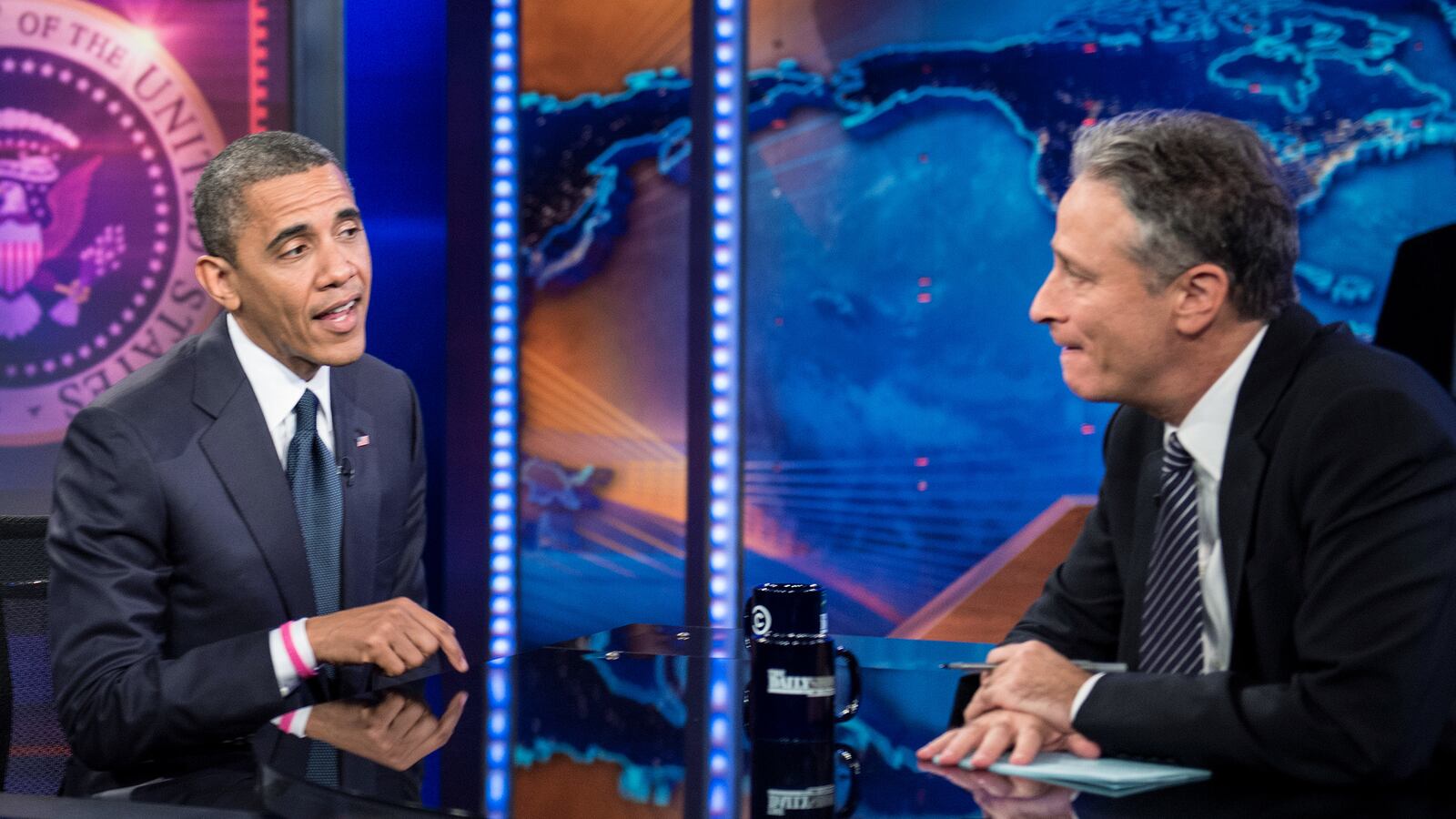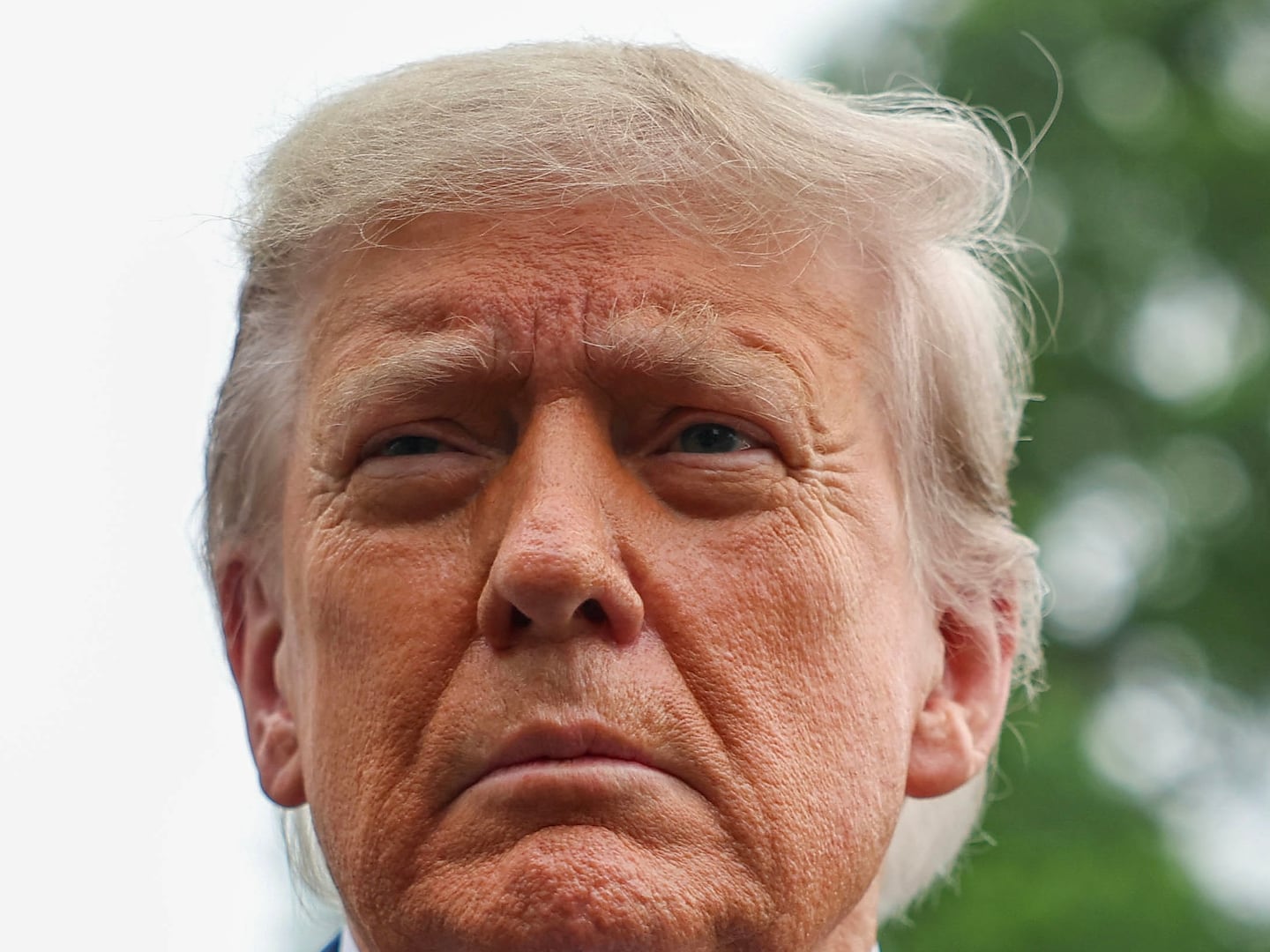For more than a decade, the most trusted name in American news was neither a journalist, policy expert, nor politician, but a comedian from New Jersey and host of a late-night news satire show.
There is now a petition circulating online requesting this comedian moderate at least one of the upcoming debates for the 2016 presidential election.
With Jon Stewart retired from his gig at The Daily Show, it’s not like he’s not busy doing anything else.
New Jersey resident and longtime Stewart fan Mariel Waters started the petition on August 6, the day Stewart’s Daily Show run came to an end, just shortly after Waters quit her job as a teacher. The petition asks the Commission on Presidential Debates “to approach and select Jon Stewart to moderate one of the three major presidential debates leading up to the 2016 election.”
The petition includes a six-paragraph manifesto touting the comedian’s place in media, awards he’s won, and his experience interviewing “15 heads of state, 22 members of the United States Cabinet, 32 members of the United States Senate, 7 members of the United States House of Representatives, and scores of other political leaders from this country and around the world.”
Since the petition was posted to Change.org two weeks ago, it has collected over 221,000 signatures and spread across the internet. By August 20, Waters’s proposition was the most upvoted item on The Daily Show’s sub-reddit. The petition has been mentioned on the web by Variety, The Mary Sue, and The Guardian. Democratic presidential contender Martin O’Malley has signed on to the movement. Thousands of supporters are voicing their agreement on Twitter under the hashtag #WeWantJon.
Waters, who says she is an Independent, wrote in a Facebook post, “I honestly don’t know what I would have done without [Stewart] during my post-9/11, Iraq War, twenty-something disillusionment.”
Even Larry King, who awakens from his thousand-year slumber only on nights when the moon is waxing gibbous, prophesied it was a good idea.
Someone started a petition for Jon Stewart to moderate a 2016 presidential debate.I could get behind this! #WeWantJon http://t.co/1VropKMCsk
— Larry King (@kingsthings) August 21, 2015And maybe it is.
Stewart and The Daily Show’s coverage of the presidential race between Al Gore and George W. Bush, known as Indecision 2000, altered televised politics in America. They satirized the media’s constant spin and earned a Peabody and an Emmy Award for their coverage of the Gore-Bush race.
By the next election cycle, candidates including John Kerry, John Edwards, and John McCain (and other people not named John who were also seeking the presidency) started visiting Stewart’s desk to connect with younger, more independent voters.
Both sides of the political spectrum criticize Stewart for his biases.
The left is suspicious of Stewart’s conviviality with TV hosts and politicians. His segments focusing on the hypocrisy of racist, sexist, or xenophobic interview subjects presented those same groups with a broader messaging platform. With public figures, The Daily Show skewered from a distance more than attacked from the front.
The former host also vocally supports teachers’ rights because of his mother’s career as an educator throughout his New Jersey childhood.
Ex-teacher Waters echoes Stewart’s doubts about the educational future of the state, especially after Republican presidential candidate and New Jersey Governor Chris Christie cut $1.6 billion from a public pension system at the same time that he handed Exxon Mobile $8.65 billion in a settlement. That settlement let the company off the hook for creating “‘sludge lagoons” used for hazardous waste disposal in the Meadowlands.
It also contributed to Waters’s departure from her teaching job. “I can't afford to continue to pay into a system I will probably never benefit from,” she says.
Stewart’s criticism of the Bush administration’s Iraq War approach also resonated with Waters.
“You always have a vague sense politicians aren’t telling the truth,” she says. “But [the Iraq War] was one of the first instances in my life where it was inescapably obvious that the politicians were lying. Listening to Jon made you feel like you weren’t alone.”
And the host has critically engaged voters whose primary source of public information is the Internet—a new kind of voter Waters exemplifies. Stewart has critically engaged these voters in television, public debates, books, and in the extended interviews The Daily Show made available after significant guests appeared on the show. Those unedited interviews conveyed an honesty noticeably absent from manufactured television news.
Stewart’s debate moderation would shake up expectations about important U.S. public discussions. In a standup set in 1996, Stewart said, “You don’t watch a debate to hear about health care. Debates aren’t interesting. You watch debates like you watch an auto race. You want to see a car go out of control, fly into the stands, and kill somebody.”
At the time, he was talking about third-party presidential candidate Ross Perot, but the same is equally true of current Republican front-runner Donald Trump, who has refused to rule out a third-party run.
Waters is hesitant about the future. Her young students make her hopeful for a more progressive future, but the older generation makes her despair about the history she’s inherited.
But she does know which Daily Show correspondents she would have co-moderate the debates with Stewart.
“Rob Riggle, because he’s a veteran who served in Afghanistan, among other places,” she said. “It would be nice to give our veterans more of a voice when it comes to deciding who will be the Commander-in-Chief. Also, John Hodgeman, so the One Percent can FINALLY have a voice in our political process.”
Neither Jon Stewart nor the Commission on Presidential Debates have commented on the petition.
You can sign the petition to have Jon Stewart moderate a 2016 presidential debate at Change.org.






